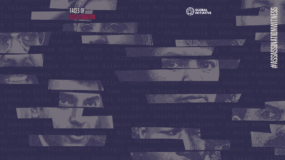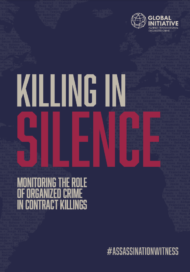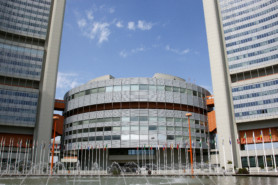Posted on 02 Jun 2022
The assassination of whistle-blowers reveals the close links between organized crime and corruption, and it demands a comprehensive and integrated response from international bodies and state structures.
On 23 August 2021, South African civil servant Babita Deokaran was killed by gunmen outside her home near Johannesburg. Deokaran was the chief financial officer at the Gauteng Department of Health and a key witness in a probe into fraud in public tenders. It is believed that her exposure of influential people involved in the scheme led to her assassination.
In April 2022, six suspected gunmen were formally indicted with charges of murder, attempted murder, and illegal possession of firearms and ammunition in the case. The suspects are believed to be from KwaZulu-Natal, a province highlighted by Global Initiative Against Transnational Organized Crime (GI-TOC) research as the main source of the high numbers of contract killings that are committed in South Africa. The province, a nursery of armed violence, has a long-standing history of supplying hitmen for the taxi industry and is a hotspot for assassinations related to political power struggles and competition for government tenders.
Deokaran’s fate underscores the price paid by whistle-blowers and witnesses in major corruption and organized crime cases. In a number of countries worldwide, the treatment given to those who expose criminal activity and malfeasance is often retaliation, including surveillance, cyberattacks, strategic lawsuits against public participation, arbitrary arrests, death threats and, in extreme cases, murder.
Protect their voices
This environment is symptomatic of what the GI-TOC has described as ‘organized corruption’, recognizing that organized crime and corruption are mutually reinforcing. This includes cases in which organized entities that are not necessarily illegal obtain financial, political or social gains through acts of corruption, a trend exacerbated by the pandemic.
Violence against those attempting to hold criminal or corrupt actors to account is part of a growing concern around the commercialization of violence. The GI-TOC’s research on assassinations found that, in 2019–2020, 4 per cent of assassinations worldwide targeted victims belonging to the criminal justice system, such as magistrates, prosecutors, lawyers and witnesses, including those assigned to witness protection programmes.
Whistle-blowers and witnesses are pivotal to contributing to public accountability and good governance. Their ability to cooperate with criminal justice institutions without fear of reprisal is vital to upholding the rule of law, and their support in countering criminality should not be taken for granted. Without a system capable of protecting them, it is unlikely that witnesses and whistle-blowers will be able to navigate the severe risks they face. This may well allow criminal and corrupt acts to go unreported, contributing to high levels of impunity and other failures in criminal justice.
At the international level, almost all UN member states have agreed to standards to protect witnesses and whistle-blowers, such as those set forth in the UN Convention Against Corruption (UNCAC) and the UN Convention Against Transnational Organized Crime (UNTOC). But, in practice, governments have fallen short in effectively enforcing these mechanisms. ‘Safeguards to protect whistle-blowers are often either weak or non-existent,’ said Mary Lawlor, UN Special Rapporteur on the situation of human rights defenders, at a March 2022 meeting of the UN Human Rights Council. Even if they do exist, laws to protect whistle-blowers are largely underutilized.
Witness protection programmes should be well thought out and adequately funded, with a focus on psychological and financial support. Protective measures can range from escorting witnesses to the courtroom, to complete resettlement under a new identity. Laws should encompass provisions for anonymous reporting and testimony through technological means, and should sanction attempts of retaliation. Processes should be conducted with transparency and proper oversight.
The international community can contribute to addressing legal gaps and sharing best practices. Resolution 9/4 (‘Strengthening the implementation of the UNCAC at regional levels’), adopted by the Conference of the States Parties to the UNCAC in December 2021, requests the UNODC to provide member states with assistance in incorporating appropriate measures to provide protection for those who report on the offences regulated by the Convention. The UNTOC review mechanism process is also an opportunity for member states and civil society organizations to assess national laws and improve policy focused on protecting individuals. The review will include an assessment of article 24, which addresses witness protection frameworks, but this is not expected to start until 2026 and the review process itself is showing low levels of transparency and lack of access for civil society organizations.
Meanwhile, justice is yet to be served for Deokaran and her family. In April 2022, her case was moved up to the Johannesburg High Court and the prosecutor identified around 50 witnesses to testify. But the question of who ordered the hit remains a mystery – it is believed that the mastermind is still at large. Deokaran’s assassination exposed gaping holes in the country’s approach to whistle-blower protection and some have called for making the protection of whistle-blowers a national priority.
However, legal protection is not in itself sufficient; it is crucial for enacted laws to be effective and well implemented so that witnesses and whistle-blowers have the courage and assurance to call out wrongdoing. A comprehensive approach that includes stronger laws on whistle-blower protection and policies that facilitate secure information sharing is necessary. In South Africa, and wherever else those who choose to speak out for justice are intimidated, effective implementation of state obligations to protect them is well overdue.



